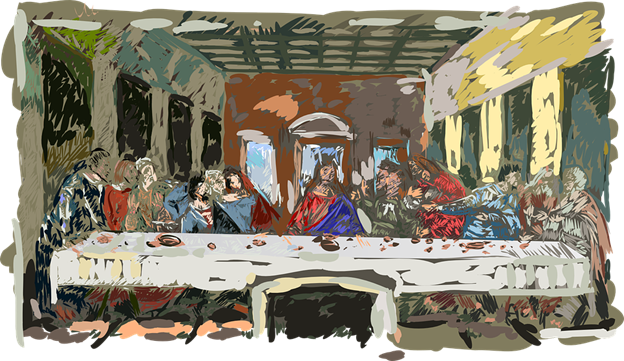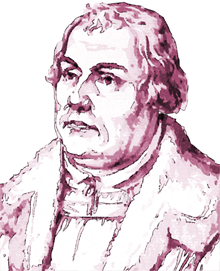The differences between Rome and Protestantism.
 Photo: Pixabay, CC0
Photo: Pixabay, CC0
In the sixteenth century, different factions within the Protestant world reacted against the Roman doctrine of Transubstantiation.
To kick off: what is Transubstantiation?
Etymologically, the term alludes to transformation of one substance into another. In the context of the Eucharist, it refers to the bread and the wine literally becoming the body and the blood of the Lord Christ.
According to the Vatican, “In the most blessed sacrament of the Eucharist, the body and blood, together with the soul and divinity, of our Lord Jesus Christ and, therefore, the whole Christ, is truly, really and substantially contained” (Catechism, 1374).
All the Reformers did away with this interpretation of the Supper.
LUTHER
 The German Reformer Martin Luther. / Pixabay
The German Reformer Martin Luther. / PixabayLuther attacked the doctrine of Transubstantiation because it was based upon the Aristotelian theology of Thomas Aquinas. The German denied that the ‘accidents’ (the bread and the wine) changed substance during the celebration of the sacrament.
Nevertheless, and somewhat surprisingly for contemporary Evangelicals, Luther did indeed affirm the real presence in the Supper thanks to the supposed omnipresence of Christ’s human nature. This distinctive Lutheran doctrine is known as the ubiquity of Christ.
Luther, therefore, believed that the body and blood of Christ were offered “in, with and under” the elements of the bread and wine; but by no means did the physical rudiments experience a transformation in their substance. Some have helpfully labelled this conviction as Consubstantiation.
ZWINGLI
 Zwingli proposed the most radical form of the Lord's Supper which was also adopted by the Anabaptists. / ChristianExplorer.Org
Zwingli proposed the most radical form of the Lord's Supper which was also adopted by the Anabaptists. / ChristianExplorer.OrgThe father of the Reformation in the Helvetic Confederacy was somewhat more radical than Luther. Huldrych Zwingli opposed any notion of the real presence of Christ in the Supper proposing that the Breaking of Bread was nothing more than a memorial event.
Christ could not be present, according to the Swiss, because He was seated at the right-hand of the Father. How could a human body be in two places at the same time? The bread and the wine simply symbolize the body and the blood of the Saviour.
Zwingli’s theology, then, tends towards the real absence of Christ in contrast to the real presence at work within Catholicism and Lutheranism.
CALVIN
 Calvin sought to steer between Luther and Zwingli defending the idea of the spiritual presence of Christ in the Supper. / Pixabay
Calvin sought to steer between Luther and Zwingli defending the idea of the spiritual presence of Christ in the Supper. / PixabayA generation later, along came the Frenchman John Calvin who tried to mediate between the divergent theologies of Luther and Zwingli. Calvin believed that both men were, in some ways, correct.
Regarding Luther, Calvin agreed that Christ was indeed really present at the Supper. But with respect to Zwingli, he was convinced that such a presence was not physical.
The Geneva-based Reformer put forward the concept of the spiritual presence of Christ in the Eucharist. The Son of God is present in a special manner when His people meet around the Table. And His presence is mediated to them via the omnipresent Spirit of the Lord.
TODAY
Within the Protestant world as a whole, the views of Zwingli and Calvin are certainly the most popular. In fact, even many Lutherans have distanced themselves somewhat from their founder’s understanding of the nature of the Supper.

Las opiniones vertidas por nuestros colaboradores se realizan a nivel personal, pudiendo coincidir o no con la postura de la dirección de Protestante Digital.
Si quieres comentar o